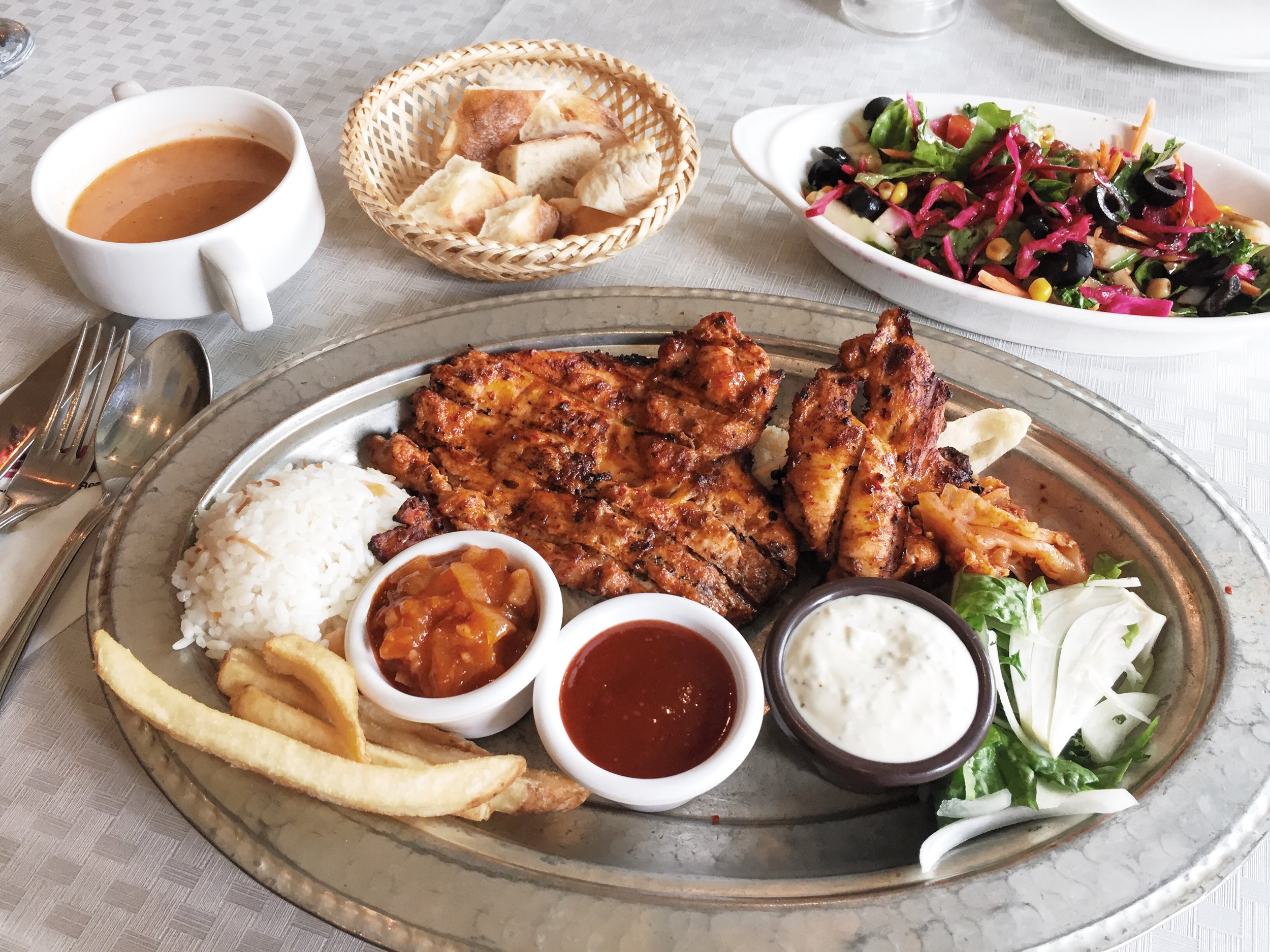FEATURED PHRASES:
*the following phrases are informal, so use towards friends and those younger than you.
불금이다!
Bulgeumeda!
It’s Fire Friday!
(Formal version: 불금이예요! Bulgeumiyeyo!)
While "bulgeum" is the most popular combo, you can apply "bul" (fire) to other weekdays.
불토 / Fire Saturday / bulto
불일 / Fire Sunday / bulil
불월 / Fire Monday / bulwol
불화 / Fire Tuesday / bulhwa
불수 /Fire Wednesday / bulsu
불목 / Fire Thursday / bulmok
불금인데 뭐해?
Bulgeumindae mwohae?
It’s Fire Friday. What are you gonna do?
(Formal: 불금인데 뭐해요? Bulgeumindae mwohaeyo?)
소맥 한잔 해야지.
Ssomek hanjan haeyaji.
We must drink somek.
(Formal: 소맥 한잔 해야지요. Ssomek hanjan haeyajiyo.)
왜 혼자 따랐어?
Wae honja ddalassuh?
Why’d you pour for yourself?
(Formal: 왜 혼자 따랐어요? Wae honja ddalassuhyo?)
폭탄주 만들 줄 알아?
Poktanju mandeul jul alah?
Do you know how to make bomb shots?
(Formal: 폭탄주 만들 줄 알아요? Poktanju mandeul jul alahyo?)
내가 폭탄주 만들어 줄게.
Naega poktanju mandeuluh julggae.
I’ll make a bomb shot for you.
(Formal: 재가 폭탄주 만들어 줄게요. Jaega poktanju mandeuluh julggaeyo.)
너 주량이 어떻게 돼?
Nuh julyangee eodduhgae dwae?
What’s your drinking capacity?
(Formal: 주량이 어떻게 돼요? Julyangee eodduhgae dwaeyo?)
너 술버릇 있어?
Nuh sulbeoleut issuh?
Do you have any drinking habits?
(Formal: 술버릇 있어요? Sulbeoleut issuhyo?)
나는 취하면 애교가 많아져.
Naneun chwihamyun aegyoga manahjyuh.
When I get drunk, I have a lot of aegyo.
(Formal: 저는 취하면 애교가 많아져요. Jeoneun chwihamyun aegyoga manajyeoyo.)
나는 취하면 그냥 자.
Naneun chwihamyun geunyang ja.
When I get drunk, I just fall asleep.
(Formal: 저는 취하면 그냥 자요. Jeoneun chwihamyun geunyang jayo.)
나는 소주 한병 마실 수 있어.
Naneun ssoju hanbyung mashil soo issuh.
I can drink one bottle of soju.
(Formal: 저는 소주 한병 마실 수 있어요. Jeoneun soju hanbyeong mashil soo issuhyo.)
난 맥주 한잔이면 만취야.
Nan mekju hanjanemyun manchwiya.
I get super drunk off a serving of beer.
(Formal: 전 맥주 한잔이면 만취예요. Jeon mekju hanjanimyun manchwiyeyo.)
요즘은 어느 클럽이 물이 좋아?
Yojeumeun uhneu keullubee moolee joah?
What’s the best club to go these days?
(Formal: 요즘은 어느 클럽이 물이 좋아요? Yojeumeun uhneu keullubee moolee joayo?)
건배!
Gunbae!
Cheers!
“Gunbae” is the old-school way of saying “cheers.” Use it when drinking with work colleagues and elders. Remember to clink your glass with your party peoples. What do the younger generations say these days?
짠!
Jjan!
JJAN is the sound effect of glasses hitting each other. Use JJAN with friends or people your age. Don’t use it with the elders.







































